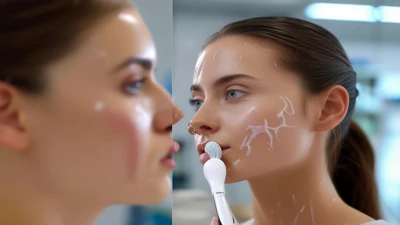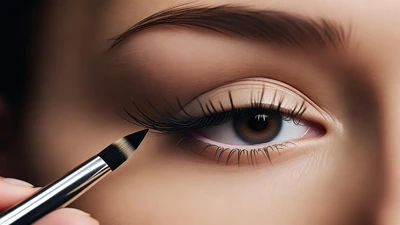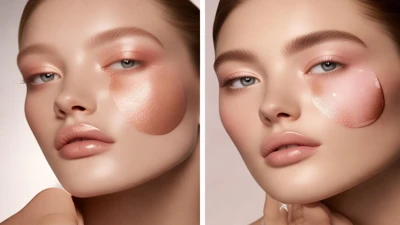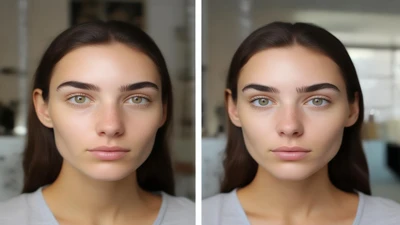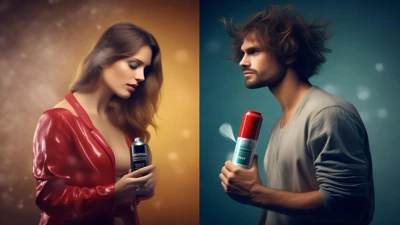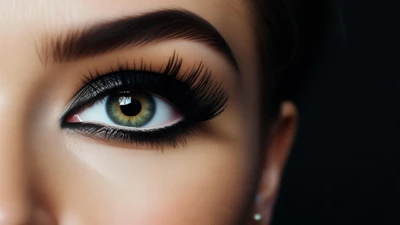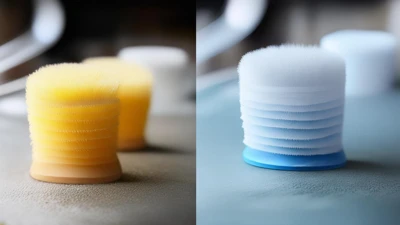
Exfoliating Acids Versus Physical Scrubs: Which Is More Gentle for Acne-Prone Skin?
Exfoliation is one of the most important steps in skincare. This is particularly true for people who have acne-prone skin. Exfoliation helps to remove dead skin cells. Removing these cells unclogs pores. Unclogging pores promotes cell turnover. Promoting cell turnover reduces breakouts and enhances skin texture.
People are still divided on the choice between chemical exfoliants (acids) and physical scrubs. Both approaches target comparable outcomes, yet they differ greatly in how they work, how well they perform, and how gentle they are.
Learning About Exfoliation Techniques for Acne-Prone Skin
The Importance of Exfoliation in Managing Acne
Blocked hair follicles due to oil and dead skin cells result in acne. Cutibacterium acnes bacteria flourish under these circumstances. Exfoliation breaks the cycle and stops pores from getting blocked. Overdoing exfoliation can impair the skin's defense system, causing heightened sensitivity and irritation.
Main Differences Between Chemical and Physical Exfoliation
Alpha-hydroxy acids (AHAs) and beta-hydroxy acids (BHAs) are effective in dissolving dead skin cells.
Abrasive particles are used in physical scrubs. You can manually remove debris using sugar and microbeads.
What Are Exfoliating Acids and Why Are They Useful
Acids Typically Included in Skincare Lines
Salicylic Acid (BHA): Oil-soluble and can dive deep into pores to break down sebum and dead skin cells. A study from 2019 found that salicylic acid is effective in reducing acne lesions by 50% over 12 weeks.
Glycolic Acid (AHA): Water-soluble and works well for skin texture. Sensitive skin users might experience irritation though.
Lactic Acid (AHA): Acts as a softer option than glycolic acid. It is typically recommended for dry or sensitive skin that experiences acne.
Positive Effects on Acne-Prone Skin
Salicylic acid and other BHAs work by entering pores and targeting what triggers acne.
The anti-inflammatory effects of salicylic acid can decrease redness and swelling.
Appropriate use of acids ensures the skin's lipid barrier remains healthy.
Does Salicylic Acid Work? Findings from a Case Study
In a 2021 clinical trial, inflammatory lesions were reduced by 62% in the acid group and by 38% in the scrub group over eight weeks. Among scrub users, 22% reported increased dryness and irritation.
Learn About Physical Scrubs: Material Breakdown, Working Principles, and Health Risks
Common Abrasive Agents
Synthetic microbeads were banned in the USA in 2015 due to environmental harm.
Natural solutions include jojoba beads, rice bran, or walnut shells.
Risks and Limitations
Over-scrubbing may lead to microtears, allowing bacteria to enter and worsen acne.
Excessive use disrupts the skin barrier, leaving it dry and stimulating rebound oil production.
Gentleness vs. Efficacy: A Detailed Comparison
Skin Barrier Impact
Well-formulated acids preserve the lipid barrier, whereas physical scrubs fail to do so. Using scrubs twice weekly raised transepidermal water loss by 18%, pointing to barrier dysfunction.
Irritation Potential
Acids pose an irritation risk but can be minimized with gradual introduction and pH-balanced formulas.
Scrubs cause immediate irritation; data shows redness or stinging affected 68% of scrub users versus 34% of acid users.
Long-Term Outcomes
Using acids improves acne steadily, while scrubs may damage the skin's protective layer over time.
Results of Clinical Observations and Case Reports
Study 1 Focuses on Salicylic Acid Compared with Physical Scrubs (2021)
Salicylic acid reduced acne better and resulted in fewer side effects compared to scrubs.
Research 2: Glycolic Acid and Post-Inflammatory Hyperpigmentation
An 82% improvement in post-acne dark spots was observed with 10% glycolic acid. In contrast, scrubs aggravated pigmentation problems in 12% of cases due to inflammation.
Anecdotes from Users and Informal Data
"My skin improved significantly thanks to salicylic acid," said a member of r/SkincareAddiction.
"Scrubs tend to irritate my skin," noted feedback analysis from Paula's Choice.
Guidance from Dermatology Experts and Practitioners
Dr. Whitney Bowe advises that acids like salicylic acid cooperate with the skin instead of disrupting it. The American Academy of Dermatology recommends chemical exfoliants as the first treatment for acne.
A Word From Beautyvs
Exfoliating acids, especially BHAs such as salicylic acid, are milder and more effective for acne-prone skin. Their ability to target issues, maintain the skin barrier, and show clinical outcomes makes them superior. Physical scrubs often result in irritation and potential long-term damage.







